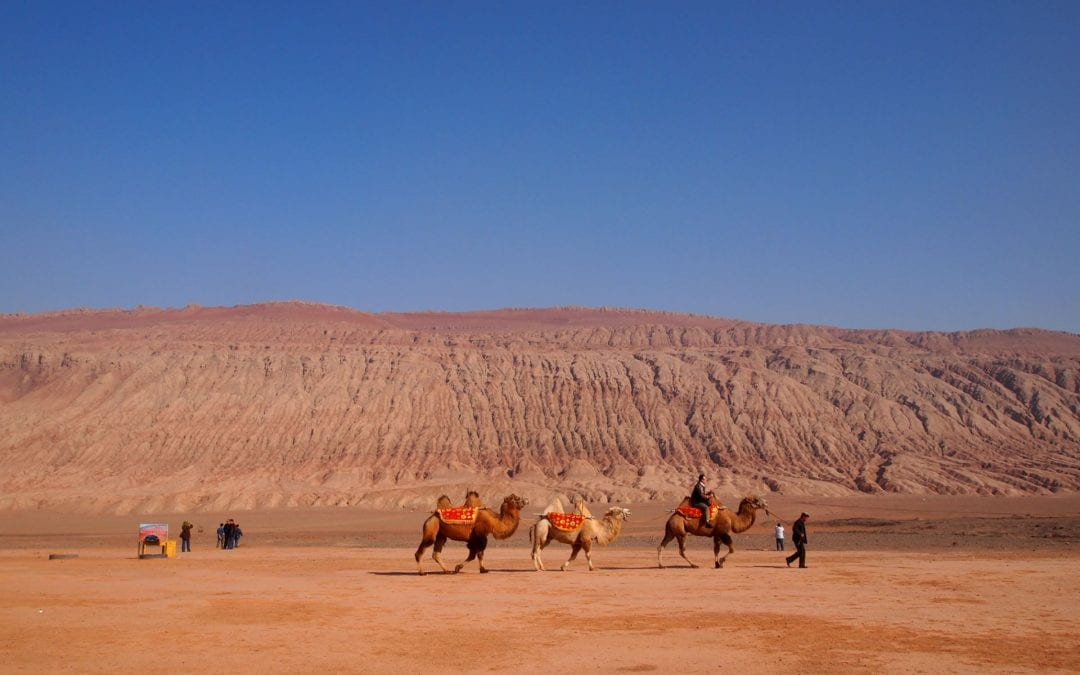For students returning home from school, there is often a sense of joy that comes with the reunion of student to family. But for some Uyghur students coming home to the Xinjiang Uyghur Autonomous Region of the People’s Republic of China, they were met with the tragedy of discovering that their family members had been taken for “treatment” in facilities by the Communist Party of China. Many of the facilities also house factories in which inmates are forced into labor.
Leaked documents show that, since 2017, the authorities in Xinjiang have detained hundreds of thousands of Uyghurs, Kazakhs, and other Muslim ethnic minorities in internment camps, where the inmates would undergo months or years of indoctrination in order to transform them into secular, loyal supporters of the Party. A U.S. congressional report outlines some of the evidence which reveals that the camps, especially those with factories, are subjected the inmates to torture, coercion, and deprivation of rights. Other atrocities are being committed against the Uyghurs in what is being called a cultural genocide. Religious sites are being destroyed and, especially within the camps, religious practices are being prohibited. Uyghur families are separated and Uyghur women are subjected to sterilization, forced IUDs, and even forced abortion. Despite the strong evidence of human rights violations, the International Criminal Court (ICC) is not moving forward with an investigation into the mass detention due to jurisdictional issues; China does not fall within ICC’s jurisdiction and the Court did not find enough evidence to pursue charges in jurisdiction within their purview. How then can countries push back against the violations against these Muslim minorities?
In the United States, the Uyghur Forced Labor Prevention Act passed the House as of September 22, 2020 and was referred to the Committee on Foreign Relations but has not yet become law. The bill would “[ensure] that goods made with forced labor in the Xinjiang Uyghur Autonomous Region of the People’s Republic of China do not enter the United States market, and for other purposes.” The bill quickly passed 406 to 3, which came as a surprise to the apparel industry given that there had not yet been much lobbying for changes to relax the bill. Would the bill become law, the apparel industry would be majorly impacted given that Xinjiang produces over twenty percent of the world’s cotton.
Cotton is not the only major supply from the region on which American corporations rely. Gloves, shoes, tomatoes, and sugar are just a few of the other supplies that American corporations procure from China which are strongly suspected of being connected to forced labor. Some factories are known to work directly with world-wide corporations. One such company, Youngor, which supplies grey yarn to companies such as H&M, instructed its workers not to pray in public or keep ethnic or religious content nor to spread online content harmful to ethnic unity.
Given the great reliance Chinese manufacturing and supplies, major corporations—such as Nike and Coca-Cola as well as Apple—are lobbying to weaken the bill, arguing that the bill would wreak havoc on supply chains. Qingdao Taekwang Shoes Co., after all, has been a Nike supplier for more than 30 years and is one of Nike’s American brand’s largest factories. Companies are also concerned about their ability to comply with stringent requirements given the difficulty auditors have faced in moving within China. Even human rights groups are concerned that it may be difficult to track forced labor practices in China given that the Chinese are moving some of the Uyghur out of Xinjiang.
Despite the difficulties that the bill could produce, there is little to no evidence that the forced labor and the cultural genocide of Muslim minority groups will end in China without pressure from other countries, especially world powers like the Unites States. Even now, factories in China are moving to Xinjiang to benefit from the cheap labor and the government subsidies involved in using the “reeducation” camp system. The coming months should show how the United States will formally respond and transition the Uyghur Forced Labor Prevention Act into law.
Author Biography: Danielle Barnes-Smith is a moderator for the International Law and Policy Brief (ILPB) at The George Washington University Law School. She is a law degree candidate at The George Washington Law School and has a Master in Public Administration from the University of Montana.

